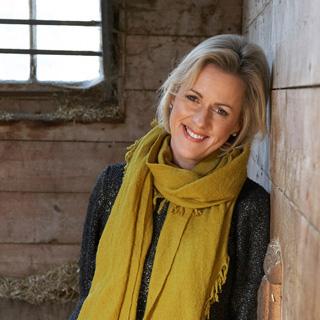Daring to Bare
What would you tell a stranger about yourself? Would you reveal a secret obsessive compulsive disorder, or a long-held resentment against a member of your family? Could you tell them about cruel things you did in your childhood? Or how your husband fails to satisfy you in bed?
I wondered about this yesterday after reading an excellent piece about being an only child by The Times’s Janice Turner. I was one of many people to congratulate her on twitter afterwards, where she admitted that she felt peculiar about having been so honest. Writing something so personal, she said, left her feeling exposed.
Some of the best writing I’ve read of late has been of the self-exposing kind. I became friends with Twitter’s @belgianwaffling as a result of reading her astonishingly honest blog about marital breakdown. I admired the work of @52betty, whose blog about resurrecting a long-dead marital sex life was forensically, toe-curlingly real. I can quote whole phrases from Caitlin Moran’s How To Be A Woman, with its achingly beautiful chapters on adolescence, birth and abortion. And like many UK readers, I am mildly obsessed with the Mail’s columnist Liz Jones, and her inability to see how her habit of putting every bit of her life up for public scrutiny might contribute to her self-sabotaging of her own happiness.
It’s a curious thing to put yourself out there in print. It’s easy to forget that what can feel like a confidence between you and the keyboard may be read by a million people, many of whom may choose to judge you on the basis of it. But in the age of exposure, there are few writers who can avoid it.
At publication time, it is common to have a meeting with your publishers’ publicity dept, where they will ask you ‘if there is anything you can write about?’ What this really means, is ‘what can you tell us about your private life that may get us a slot in a national publication?”
I have played this game. I have written – albeit jokingly, and with my husband’s clearance – about marriage. I have written about secret crushes, disastrous family holidays, and the difficulties of good parenting. I recently wrote a piece about the underreporting of breast pain. I am, in percentage terms, perhaps 30 per cent out there. My own weapon against feelings of genuine exposure is humour – I find myself adopting a faux jokey style, telling the story against myself. You cannot judge me – haha! – it says – because I have already judged myself.
Both @Belgianwaffling and @52betty got around this by writing anonymously. I’m sure it contributed to the recklessly liberating tone of their writing. But autobiography removes that option. When @52betty went public after getting a book deal, part of me applauded but the other half curled up with vicarious anxiety. How do you talk to your neighbours after they might have read about your anal sex experiment? How do you chat to the man in the shop when he might have been reading about your weirdest fantasies? I couldn’t do it. I don’t know if it’s fearlessness, or a requisite layer of skin I’m missing, but I couldn’t.
Every time I mention my own life in print, I find I’m running through a mental checklist. Who could be hurt by this? How might it be misread? Could this ever be used against me? (I’m doing it now) What remains is generally slim pickings; what a former colleague used to call “trite shite”. So no, I do not write about the real stuff. I do not write about my children in any but the most general terms, especially not now they are old enough to be embarrassed by my words. I wrote about my youngest son’s cochlear implant because it was an impossible decision and we wanted to help other families of deaf children. And that, my husband and I agreed, was it. I shuddered at Julie Myerson’s The Lost Child and its exposure of her son during his difficult teenage years. Yes, her writing was beautiful but I couldn’t see past the sense of maternal betrayal to enjoy it. I don’t believe truth is everything if the writer is the one who holds all the weapons.
Some years ago I realised that my childhood was not ordinary (not many children kept a horse behind Hackney Town Hall, or had David Hockney draw them pictures). The writer part of me often plays with the material, knows I could make it compelling. But I also remember my mother telling me once how uncomfortable it made her when I wrote about our family; it removes from other parties a say in their own history. It leaves them both exposed and powerless.
So those words exist only in my head. Because, for now at least, the warning voice is louder. I don’t think my need to tell that story outweighs her need for peace of mind. Philip Roth may have been right when he said that when a writer is born “a family dies” – I suspect you can’t write honestly about life without hurting people. Possibly even yourself: I’m guessing that it would be possible to get so caught up in the writing of it, that you might lose track of how much of yourself you were laying bare.
It was telling that I recently had a pitch turned down by a magazine with the words: “It was interesting, but we really wanted something intensely personal”. My overwhelming feeling was not disappointment at the lost pitch, but relief. Better, safer, to slip the experiences into fiction. Or just keep them to myself.
Until I have another book to promote, obviously. In which case you can expect my “My Bullied Child Deviant Sex Horror” all over page three.

